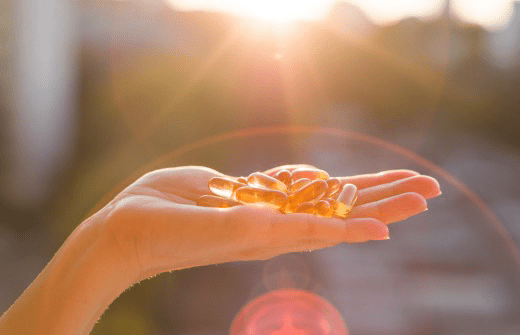Vitamin C is an essential nutrient that our body can not synthetize. Many biological functions are depending on it and that is why it is so important to meet everyday need through diet.
Most animals are able to synthesize ascorbic acid from glucose, but humans lost this ability during evolution. Our body can not even keep it stored. Vitamin C is water soluble, so an excess amount is excluded in urine. We are absolutely dependent on the income in diet and due to its vital role throughout the body, it is necessary to meet every day needs. Daily Recommended Intake varies by age, from approximately 40 mg for infants till 100 mg a day for adult man.The real necessity of vitamin C is individual and depends on many factors (as many other nutrients).
What foods are rich in vitamin C?
Black currant, rose hips, sea buckthorn, gooseberry, red and green peppers, kiwi, broccoli, sorrel, brussels sprouts, parsley, strawberries, fennel, acerola and of course citrus fruits. These are foods rich in vitamin C. For example, a handful of parsley (aprox. 25g) can cover 50% of daily intake. What makes it a perfect ingredient for morning fresh or midday basil parsley pesto to cover almost half day needs of vitamin C.
Try to eat as many different types and colours of fruits and veggies as you can. All fruits and vegetables contain vitamins, minerals and other nutrients working together and you can have more health benefits.

How maximize absorption and bioavailability of vitamin C
The bioavailability of vitamin C depends on the amount we receive. Higher amounts are absorbed at lower doses. Small amounts divided during the whole day are well utilized by the body. Unfortunately being so essential to us, vitamin C is one of the most sensitive nutrients. It is easily degraded by air, light and heat. That is why it is better to cut fruits and vegetables immediately before they are consumed. Short cooking in high temperatures is preferable than long cooking and it is better to keep skins on when possible. Elevated temperatures and long cooking times have been found to cause particularly severe losses of vitamin C (it can be more than 50%). On the other hand, acidity or freezing can keep vitamin C levels in food. But frozen vegetables and fruits must not be thawed before cooking.
Do I have enough vitamin C from food?
If we eat enough fruits and vegetables with each plate, we usually cover our daily needs. But what does it means “enough fruit and vegetables”? The World health organization recommends to have minimum of 400g fruits and vegetables a day, and as many colours and types as possible. The colour of the fruit can give us information about phytochemicals included and about health benefits for us.
There are also many factors influencing bioavailability of vitamin C and amount of nutrients in each food. Because of soil depletion, crops grown decades ago were much richer in vitamins and minerals than the varieties most of us get today (studies of WHO showed decrease of minerals and vitamins in food about 50% during the last 20 years).
If we like to consume fruits and vegetables rich in nutrients, we preferable should choose a quality source from a local planter and prefer a seasonal type of food.
Is stress depleting vitamin C from our body?
The answer is - yes, definitely. Are you experiencing constant stress over a prolonged period or are you physically active on a daily basis? You should keep an eye on building our antioxidant reserves to protect your cells against negative impact of oxidative stress. Because these are situations extremely consuming vitamin C to cover biochemical functions. For example, during a strong emotion, like anger, our body needs around 3,000 mg of vitamin C. Some studies also showed that persons supplemented with 3,000 mg vitamin C during a day, were able to better respond to psychological stressors.
Our adrenal gland reacts to stress by releasing corticoids, such as corticosterone and cortisol. These and other hormones trigger the "fight or flight" reaction that prepares us to action when in danger. They also suppress the immune system, the body's first line of defense against disease. Vitamin C not only strenghten our immune response but also seems to have the ability to reduce the levels of stress hormones in the blood.
Smokers, children, pregnant and breastfeeding women, people with infectious, chronic diseases or suffering from malabsorption, they all have higher demands on vitamin C intake. Alcohol, caffeine, some drugs and heavy metals are other factors that deplete our body's vitamin C levels. If we are not able for any reason to cover daily intake of this nutrient through a diet, a quality food supplement is a perfect possibility.

Tip how to get rich sources of vitamin C from food and vegetables
- Chose fresh, fresh and fresh. Prefer local products.
- Eat seasonally. Follow cycles of nature. It is not just cheaper and better for health, but also promotes balance with the earth's resources.
- Good storage conditions. Wash fruits and vegetables when you are ready to use them and not before storing them to (moisture speeds up fruit's decay)
- Peel and cut for salads just before serving to prevent oxidation. Vitamin C is water soluble, it is easily destroyed by excessive water baths for a long time.
- Prefer gentler cooking methods using less water to to keep nutritional value (cooking in steamer, quick frying)

















